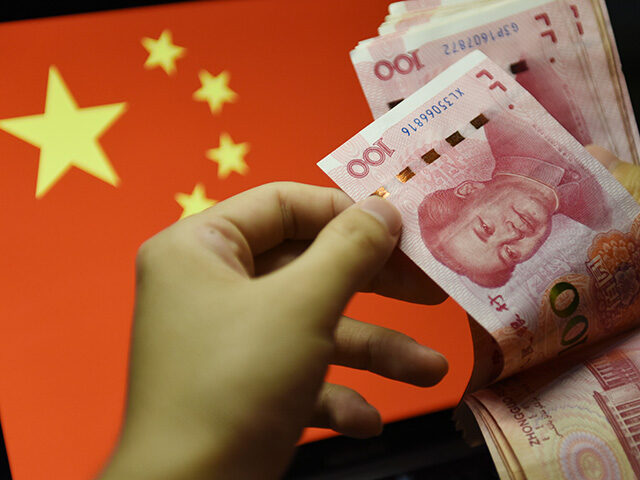The International Monetary Fund (IMF) announced on Thursday that countries may use the Chinese yuan to settle their debts with their organization after Argentina paid part of its dues to the IMF in yuan in June.
IMF spokeswoman Julie Kozack explained in a press conference held in Washington that the Chinese yuan is one of the five currencies that countries may use to settle their debts with the organization.
The IMF employs “Special Drawing Rights” (SDR), an interest-bearing international reserve asset created by the organization in 1969 to supplement other reserve assets of member countries. While not an actual currency itself, the SDR derives its value from a mix of currencies that include the U.S. dollar, the euro, Chinese yuan, Japanese yen, and British pound sterling.
Argentina and the IMF are presently engaging in negotiations pertaining to the fifth review of Argentina’s debt with the IMF – which, according to the organization, amounts to 30.2 billion SDRs (roughly $41 billion) as of this week.
“The use of this currency [Chinese yuan] is permitted by the IMF,” Kozack said on Thursday after confirming that Argentina paid $1.1 billion of the $2.7 billion that were due to the IMF in June using China’s currency.
Kozack described Argentina’s yuan payment to the IMF as a “standard practice” that any member country of the organization may employ.
Last month, Argentine Economy Minister — and the Argentine government’s prospective presidential candidate — Sergio Massa traveled to Beijing to sign a three-year renewal of Argentina’s currency swap deal with China. The deal expands the one signed in November, doubling the amount of foreign currency reserves that cash-starved Argentina can use from $5 billion to $10 billion.
During the IMF press conference, spokeswoman Kozack denied rumors that surfaced in local Argentine media this week claiming China’s IMF Executive Director Zhengxin Zhang sent a letter to the IMF warning that, if agreements between the IMF and Argentina continued to be delayed, China would authorize the South American nation to use the second tranche of the swap agreed between both countries to pay its IMF dues.
“Regarding the letter, there is no such letter,” Kozack asserted, ensuring that the Argentine and IMF teams are working “intensely” towards reaching an agreement for the fifth revision of Argentina’s debt with the organization. Massa, the economics minister, stated on Friday that his team is working towards closing a new agreement with the IMF by next week. Argentina is due to pay $2.6 billion to the IMF by the end of July.
The leftist government of President Alberto Fernández has prioritized expanding ties to communist China, officially joining China’s predatory Belt and Road Initiative (BRI) in February 2022. The BRI offers debt trap loan agreements to impoverished countries to use on infrastructure projects China then seizes when the countries cannot pay the loans back.
China has taken advantage of Argentina’s precarious economic situation and nearly non-existent foreign reserves to exert further influence, taking control of key strategic sectors of the nation’s infrastructure. A report published in March revealed that Argentina amply leads the list of countries that have received “rescue” funds from China, acquiring $111.8 billion in Chinese “bailout” funds between 2000 and 2021.
Although Argentina has been the largest recipient of Chinese funds, Fernández asked his American counterpart Joe Biden to intercede as a “bridge” during Fernández’s official visit to the United States in March —at a time when Argentina and IMF delegations underwent talks towards the fourth review of the nation’s debt with the organization.
Last month, the Argentine Central Bank authorized the nation’s banking institutions to allow clients to open bank accounts in Chinese yuan. In April, Argentina agreed with China to use yuan instead of U.S. dollars to pay for Chinese imports.
Argentina closed the first half of 2023 with an accumulated inflation rate of 50.7 percent. The South American nation’s already precarious economy was further worsened by a drought that caused losses of up to $15 billion to Argentina’s agriculture sector.
Christian K. Caruzo is a Venezuelan writer and documents life under socialism. You can follow him on Twitter here.

COMMENTS
Please let us know if you're having issues with commenting.